Moving to the Wilderness — Turning the Dream to Reality
The Dream—An increasing number of folks are having the same dream today: get a piece of land isolated from the stress and pollution of civilization, and live a self sufficient lifestyle where who you are and what you do mean more than how much money you have or what your “place” is in the corporate world. Can a family today really do it? More important, can they be happy doing it? You bet! We did. Seven miles up a rocky 4×4 trail, snowed in five months of the year, elk, moose, and bear for neighbors, living only a mile off the Continental Divide in Southwestern Montana. Our son learned to ski and ride a horse before he knew what a tricycle was.
Right now, we’re doing a voluntary stint in “civilization” to help our parents out, but when we’re no longer needed we’ll be heading back to the wilderness. No doubts at all.
Why is it, then, that about 95% of people who move to an isolated spot quit after a short time, never to return?
We lay it on inadequate preparation. The biggest change in a lifetime, and few people think of preparing for it. No wonder so many fail.
Preparation is Vital
We feel the first and perhaps the most important step in preparing for a wilderness move is to separate the dream from reality. Sure they can be the same, but sometimes there are things that must be compromised to keep sane and to live that dream in peace.
For instance, how isolated do you and your family really want to be? There are a lot of places out there, at all levels, from the last place on a good road to land where you need to canoe or pack horses in for miles, or even fly in via bush plane or chopper.
That place on the county road probably has power and phone, mail service, and a snowplow and road grader when needed. Our place, much further in, had a gas generator (used sparingly), an outhouse (used regularly), and no services.
In the winter, my husband Bob snowmobiled out weekly. Sometimes he snowmobiled part and walked part, depending on the snowpack, as it was 2,000 feet down to “civilization,” which in the mountains means temperature and snow differences. Many times there was no snowpack in the valley, but we had three feet. Needless to say, we had no snowplow but for the one on our truck, and no road grader or maintenance, save what we did.
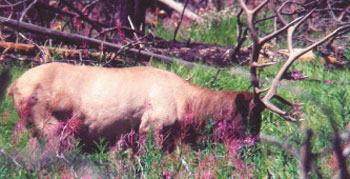 In snow country, it is impossible to keep a long road driveable in the winter, even with a snow plow and a 4×4 with chains on all four tires. It is very hard to plow uphill on a rough road: the wind piles snow into big drifts, very quickly at times, and sooner or later, you run out of places to put the snow, especially in the woods or drift-prone areas. The “convenience” of driving a truck just isn’t worth it.
In snow country, it is impossible to keep a long road driveable in the winter, even with a snow plow and a 4×4 with chains on all four tires. It is very hard to plow uphill on a rough road: the wind piles snow into big drifts, very quickly at times, and sooner or later, you run out of places to put the snow, especially in the woods or drift-prone areas. The “convenience” of driving a truck just isn’t worth it.
But then, we have friends living in northern British Columbia who canoe in and out in the summer, and snowmobile the river in the winter. A float plane on their lake is the only other option.
You and your family must make the choice. I never minded being “homebound” all winter a bit. I always had lots to do—canning, baking, playing with our son David, riding horses on the windblown hills, feeding the resident moose, planning projects, etc. I’ve never been a “mall” person. We’re 75 miles from a K-Mart now, up on the Santa Fe Trail. In civilization…but definitely out in the boonies. I don’t mind a bit.
But some folks have to get out or they feel “trapped,” and they sure have a hard time trying to change, which puts stress on the whole enterprise. There’s no way to fight Nature. When it’s dangerous or miserable travelling, only a fool tempts fate to snowmobile or ski out just to go shopping.
We were once hauling hay and got caught in a blizzard on the way home. By the time we got chains on the tires and got up the mountain—a 45 minute drive in good weather—there was 18″ of snow on the flat, and it was dark! It was still blowing and snowing steadily. The heavily loaded truck punched through the drifts well, but we could not see a thing. I finally had to walk ahead of the truck to keep on the trail. No bearings, two miles to go, David, then two, in the truck, and a white-out. Scary! But we found a landmark and made it home an hour later.
That kind of thing is not for everyone, for sure—or even for us—but it can happen. By the way, we had on warm clothes, sleeping bags behind the seat, matches, survival grub, and even a “hay house,” if really needed.
More people prefer “privacy,” as in the last house on the county road. The choice is yours. Talk it over well, as a sulky husband, wife, or teenager quickly sours a dream.
It helps to get a notebook and jot down pieces of your Dream: likes and dislikes, fears and prejudices. Be honest. How about heat, cold, snow, snakes, or bears? The biggest thing that keeps the North woods uninhabited is the bug population. A cloud of no-seeums, mosquitoes humming all day and night, plus gnats up the nose challenges all but the very determined.
Keep your family’s skills and experience in mind. I have 19 years’ experience as a veterinary technician, and Bob was a Certified Nurses Assistant, and had medical emergency training, so we weren’t too worried about medical emergencies. And we both spent a lot of time in the wilds as kids, loving every minute.
If you dream of a log cabin in the woods, can you build one from scratch, or do you prefer a good pre-cut kit?
Try to think it all out rationally, then write it down.
Our “Dream sketch” comes out like this: At least 100 acres, with a year-round creek, at least 30 acres of good pasture for horses and cow. Level to gently sloping, facing south (clears faster in the spring). Located in the mountains, but under 7,500 feet elevation (higher, and the growing season gets down to 28 days in many places). Areas: Western Montana, Wyoming, Idaho, Northern British Columbia. At least 50 miles from a large town or city. Plenty of wood available for building log buildings, home-sawn dimensional lumber, fencing, and firewood. A good spring, located well above a sheltered cabin and garden spot. At least one acre of garden area possible. At least five miles from neighbors. A 4×4 trail, useable in late spring to early winter. Power and phone not needed. Good hunting and fishing area. Surrounded by Government land on at least two sides. Legal access. Small to medium sized cabin a plus. Under $90,000. We would compromise on the trail: less access would work, but we need to haul hay in via the trail. Cabin not necessary, if timber’s good, and season early.
That’s still our dream. What’s yours like?
OK, you say, we know what we want. But how do we go about doing it? Homesteading (in the sense of free government land to families) is history, so a family has to have some ready cash. Therefore many are bound to “civilization” by necessity and the dollar. At times this can seem intolerable. But there is a lot a family can do, while earning money, developing equity in a house and improving it to sell at a later time, to keep the dream alive.
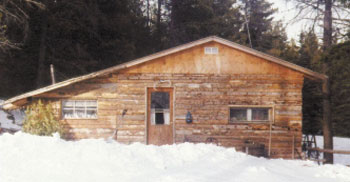 Gain Experience and Skill
Gain Experience and Skill
The most important thing is to gain life experiences that will help you in your new life. Learn to garden. Even a few square feet of suburban backyard will yield experience that will help feed the family in the bush. Specialize
in crops suited to your dream location. (For example, peas, onions, spuds, carrots, and turnips for cold climates; tomatoes, corn, and peppers for hot areas.) Gain even more ground for your “education” by suggesting and helping in school or neighborhood garden plots. (I learned to garden as a child in Detroit.)
Likewise, learn to can and preserve food. Little by little, can what you produce, starting with easy candidates, such as tomatoes, jelly, and pickles, and work your way up to meat and potatoes. Buy some produce at roadside stands and farmers’ markets, and put it up. A couple of good articles or books on canning will get you started. It’s easy and satisfying. If you can boil water, you can can.
Get as much hunting, fishing, and gathering experience as possible. All three are your basic “hands on” variety of education, that will put food on the table and in the pantry.
We have always relied heavily on deer, elk, moose, and fish to give variety to the table, and they are the basis for many hearty meals, from mule deer spaghetti to elk tacos and smoked salmon. All game is very lean and low in cholesterol. But you can’t eat it if you can’t hunt it.
We are pretty hard-line about “Don’t shoot, unless you can kill it clean” and “Don’t kill it if you don’t use all of it.” We don’t shoot for heads or horns, but for meat, and hope you will, too. Likewise, we fish at every chance, but practice catch-and-release, unless we really need the meals.
Chain saw skills are another necessity. Dad learned this by cutting neighbors’ “blow-down” trees in a Detroit suburb. It doesn’t take long to become proficient in using a saw and repairing it, with a good manual and practice. In warmer climates, or when a small cabin is to be heated, a crosscut saw or axe can be used, but in heavy snow, in cold winter climates, with a larger log home to keep warm, a chain saw is needed. Likewise, a log home goes up a year faster using a chain saw instead of the more artistic and pure hand tools.
Building experience is something you can acquire anywhere. Building with logs is a bit different, but even a log building has doors, windows, floor, and roof. Chicken coops and storage sheds are a good place to start. Even a garage lean-to will give invaluable experience. No buildings possible at your condo? Every neighborhood has someone who needs a hand building something. Check with a local senior center. You might just pick up a mentor, as well as the experience.
First aid, including CPR, is always a sane precaution, especially when planning a move to a wilderness setting with limited access. The more remote you’ll be, the more training makes sense. The scouts, Red Cross, some hospitals, and civic groups often provide some training locally, and might be able to suggest places to get further experience. We never had to use our medical training, but it eased our minds to be prepared.
Read your Dream Plan, and decide what else you could use experience in, and try to get it, whether it is canoeing, managing poultry, or goat-keeping.
Along with “hands on” experience, a good library of books and magazines is not only great study material, but will encourage and bolster your Dream, while you wait. With a good book and common sense, a lot can be learned, when necessary.
What you will need
As you gain in experience and study your Plan, it soon becomes evident that you’ll need different things, living a wilderness lifestyle…so a “wilderness hope chest” should be started.
First to be considered is temporary shelter. Building a log home takes time, even if it is only 800-900 square feet. Without experience, and with little help, even a six-month period will seldom get a log cabin weathered in. Some sort of shelter is necessary, even if only a place to stay while home building, in cold, rainy times.
This can be a camper trailer, wall tent, or tipi. However, don’t count on wintering in one of these shelters, especially in heavy cold-and-snow climates. They will work for a short period, but even Native Americans moved to a sheltered, low elevation valley to spend the winter. (You’ll find a lot of remote homes, located in areas having long, hard winters, built in stages, with several add-ons, to get a smaller section enclosed before Old Man Winter comes in again.)
Chain saws are another addition you’ll be glad to have. I say “saws” because we find three a good number, especially when building with logs and timbers. We rely on a heavier Husky 61, but keep a like-sized Poulan as a back-up. We also have a smaller Poulan, lighter than the other two, for small jobs and, cleaned well, for quartering frozen large game animals. Now, I’m not saying you must have three saws, only that it is awful handy, when it’s an all day trip (or more) to get a part or repair done— and an all day trip back again, to get it. Our saws always conk out when being heavily used…and needed.
A good wood heater and wood range follow the chain saw, naturally. If you plan on buying a place with an existing home, you might wait and see if they are included. If not, you might shop the yard sales and rummage shops to see what’s available. We hardly ever buy anything new, but usually barter for what we need, if we can. Most any large wood range will do, if it’s not rusted out. (Check the grates and oven, especially.) But buy the best wood heater you can. We’ve seen a lot of homes and cabins burned, due to a shabby stove.
After you have picked up a saw(s), pick up a few loops of chain. One or two ripping chains are a must, if you plan on making boards or squared timbers regularly. Files, a sharpening guide, extra sparkplugs, bar oil, and two-cycle oil to mix with the gas complete your bare-bones woodcutting kit. I would suggest safety apparel: chaps, steel-toed boots, and a face shield. I’ve worked without them, and have a scar on one leg, and have gotten painful wood chips in both eyes.
Here are a few more tools to consider, especially with construction in mind: axes, a log scribe (to mark your notches exactly), draw knife, splitting maul and wedges, as well as a grain scoop for shoveling snow—a must to clear the outhouse path, front door, etc.—and fencing tools, if needed.
Transportation must be considered. At our mountain home, we had two snowmobiles (one newer, one vintage, but it ran), a 4×4 pickup, and three pack horses. The truck was parked a mile from home, in an open area (which blew clean & melted early) from mid-December till May. (The first year, we mistakenly parked it by the house, forgetting all the snow ¾ of a mile of forest would trap. We had to “plank it” most of that mile, driving a few feet at a time on 14-foot 2x8s, like “Chevy Snowshoes.” It worked, but we fell off and dug through four feet of snow several times.
We used the snowmobiles after the truck was parked, and then the horses packed supplies when the valley was thawed, but we still had snow.
Sure, a guy can snowshoe or ski out, but he packs little, climbing much. Dogs do a little better, but must be fed and cared for (worming, shots, etc.) all year long.
A four-wheel ATV is great for muddy/snowy trips. We couldn’t afford one, so Bob hiked a lot. They are also quite quiet…a plus, to be sure.
If you choose a canoe-in home, a canoe is obviously needed. A 17-foot Grumman aluminum is good, easily packed, light enough to portage distances, and can be banged around without serious damage. But they are noisy, when they strike rocks, grate on gravel shallows, or someone gets tired and strikes the gunnels with a paddle.
Fiberglass is nicer, as the whole world doesn’t hear you coming; they are easily patched and take abuse, but many are heavy, if you have a long portage.
Of course, cedar strip is great… beautiful and light, but too pricey for us poor folk.
OK, now imagine you’re living the Dream. (Do this daily.) What do you need? Sure, we could pack one horse, the canoe, or even a backpack and rifle, head for the wilderness, and live out our lives. But most modern folks want a little more comfort than that.
How about light? A Coleman lamp is good and inexpensive, especially now that you can buy a lamp that burns unleaded gasoline. Add extra mantles and a replacement globe. An Aladdin lamp is perfect for inside lighting. It burns kerosene and gives enough light to read and work by. Flat-wick kerosene lamps are nice for general dim lighting and cheaper than an Aladdin, but they’ll blind you if you try reading or doing fine work.
If you opt for electric power on a low-tech scale, as we did, a 4,000-watt gas generator is not expensive and will power what is needed. We washed clothes weekly and Bob and David got to watch a movie on our VCR. “Pioneer life?”
Both of our mountain homes had spring water run underground to the house. One had a propane hot water heater (which works great with gravity feed water, by the way). The other didn’t, and we heated our water in a canning kettle and wash tub on the wood range. Both were fine for baths and washing clothes. In such a setup, a wringer washer is necessary, to save water.
We found that a propane fridge worked great, and was economical. Less than $100 a year gave us cold storage, with little maintenance. Of course you can use a spring box, but our springs were quite a way from the cabin, and we opted for the convenience. We did freeze meat in December (the end of hunting season), wrapped and packed, frozen solid, in three coolers, stored in a cache, till I could can it later (in case the weather moderated and threatened a thaw).
An inexpensive weather radio is a must. Ours cost $8.95 on sale. You can tune in and get weather reports, 24 hours a day. This is vital when planning a trip, especially in snow weather. It’s better to postpone a mail run when weather advisories are posted, no matter if the sun is shining now.
Likewise, firearms and ammunition are necessities. Even a vegetarian may need protection. We had a bear at the front door a couple of times and were comforted by a shotgun and pair of handy rifles—even though we just had to holler one time, and another time fired a couple of warning shots over the departing bear.
Everyone has their preferences for firearms. Our “trusties” are a .22 rifle for small game and raiding coyotes, a twelve gauge shotgun for birds or really aggressive bears (loaded with slugs), a Winchester .30/.30 carbine and a British .303 for big game. Nothing fancy or expensive, but they do the job. We eat and have no complaints.
We have a few boxes of ammunition for each rifle and shotgun. The farther we are from “civilization,” the more ammo is usually in the drawer. But we are very frugal with it. A little target shooting keeps us and the guns on target. We load five rounds in a rifle at a time, and it’s not unusual to have those five rounds last two hunting seasons.
We were raised to be frugal with ammunition. It doesn’t take ten bullets to kill an elk. One, placed right, at close range, does the trick, with no suffering to the animal. (Bob, a Vietnam vet, and I both feel bad when we kill to eat, but we do eat meat.)
Lastly, consider putting together a medicine chest and first aid kit. Likely it will be a lot bigger than those anemic kits sold in the stores.
Ours contains gauze wrap, adhesive bandages, tweezers, a tube of Shoe Goo (for small cactus spines and other stickers), cold and flu medicine, cough suppressants, oral electrolytes for dehydration, aspirin, and Kaopectate, along with minor surgical supplies, such as suture needles and materials and hemostats. Our doctor, trusting us and knowing our situation, gave us prescriptions, which we fill in the fall, for antibiotics, just in case. We also use many herbs, growing in our garden and woodland drug store.
We found our family had much less illness in an isolated setting than in “civilization.” A lot of it has to do with just being exposed to fewer viruses and other people’s bacteria. When we moved up to the mountains, everyone said, “What if one of you gets sick?” And they were sick, and their kids continually had colds and the flu from day-care and school. We were fine.
Life in the wilderness can be low-cost, but it is seldom free. Unfortunately, there are things like parts, gasoline, the doctor, dentist, and the food staples that are not homegrown. Sure, you can live off the land. Our ancestors did, and we have, from time to time. But a family sure gets tired of fish, meat, and roots. Yep, there’s more available, but it’s seasonal, and often not in large supply. Berries seldom last long, and greens simply boiled with wild onions can get boring. We gather and preserve wild foods. I dried and canned over 150 pounds of wild mushrooms one year, but there were very few the next. (A lot of wild foods come and go in cycles: lots one year, none the next.)
Even a self sufficient lifestyle takes a while to attain, and few ever reach (or reach for) total self-sufficiency. The first-year garden will produce some grub, but it’s generally two years or more before the soil is built up and productive. Keep in mind that no matter where you live, there will be some things you just can’t grow—be it wheat, peppers, or peas—and adjust to it. Some things you just will be buying.
We do have a few helpful suggestions in the money department. First, have no payments. Pay cash as you go for your land, cabin, and tools. Pay off your credit cards before “going bush,” then throw them in the fire.
Have your family’s routine medical and dental work done while you have a regular pay check and possibly job-related benefits. Health is generally easy to maintain in the wilds. Regular exercise, healthier food, less access to sodas, chips, cigarettes (even secondhand smoke) and fast food restaurants, coupled with a simpler lifestyle and less stress, all help out. Yes, there’ll be an occasional abscessed tooth or injured leg.
So, if it’s at all possible, stash a few dollars at a time in savings for “after the move” cash. (Even Grandma’s egg money sure helped, didn’t it.)
Develop a marketable talent before you move, possibly good leatherwork, Native American beadwork, woodwork, photography, a firewood business, or guiding vacationers. (Note: a true outfitting business involves big bucks in licensing, insurance, and permits, if even available.) It takes time to build these skills, and one needs to develop them before needing the income. Be warned: most “work at home” businesses—assembly, home mailing, reading books for profit, etc. —are frauds. (If there’s a good, honest one out there, please write.) We won’t pay to do “work,” which is the angle most of them use: “Send us $30 for the kit and complete info,” or “Send $10.95 for our book.” Sorry, guys.
Wilderness living is wonderful—the clean scent of grass, pine, sage, and rain; spectacular sunsets and clouds; storms across the land; the awesome power of winter; a wobbly moose calf in the nearby creek; the first sweet garden peas; the last firewood, stacked on the pile.
You aren’t just living on the land, but in rhythm with the land. This learned, the Dream becomes real.
Additional Research:
 |
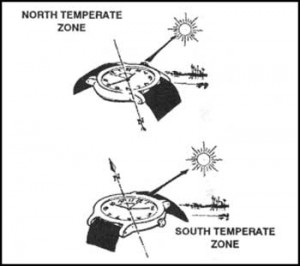
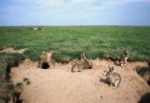
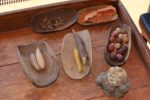

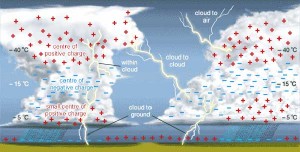
Leave a Reply